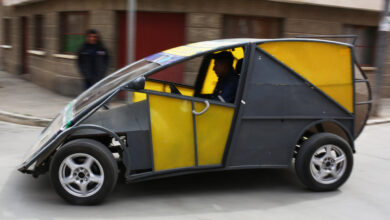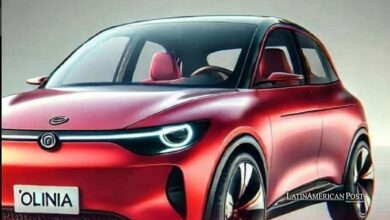Which Latin American countries have promoted the use of electric cars?
The increase in the sale of electric autos is due to the search for sustainable technology that are ecofriendy.

Latin American countries joined the idea of building a new automotive era with sustainable planning. Photo: Unsplash
LatinAmerican Post | Moises Campos
Listen to this article
Leer en español: ¿Qué países de América Latina han promovido el uso de autos eléctricos?
According to the United Nations, electric cars are an alternative to improve the environment in the world. Latin American countries joined the idea of building a new automotive era with sustainable planning.
According to Sputniknews.com, many organizations such as the United Nations have listened to the proposals and these have been accepted in several Latin American nations who have implemented sustainable development in their car factories and have joined the world vanguard.
The UN Environment Program (UNEP) reported in 2019 that the electric car market in Latin America and the Caribbean has grown . This, as part of the multiple strategies to reduce the impact of carbide emissions in the environment and thus improve the quality of natural resources.
Más de 2 mil millones de vehículos de combustión interna circulan hoy en el .
— Programa ONU Medio Ambiente (@unep_espanol) April 8, 2021
¡Urge acelerar la transición hacia la movilidad cero emisiones!
Conoce nueva plataforma #RouteZero para fomentar compromisos ambiciosos antes de la #COP26: https://t.co/McY1jroKOa #RaceToZero pic.twitter.com/t1eTQ0PGwt
Electric cars in Latin America
UNEP affirms that in the last decade, several nations in Latin America and the Caribbean have promoted the electric car, thanks to the integration of several companies and governments that have financed projects in trial mode that later end up being imported.
According to the Latin American Economic Observatory (OBELA) in the 2020 report, in the fight to reduce carbon dioxid, countries have chosen to implement plans through rules and regulations that promote their development in the region.
Also read: How can I contribute to the restoration of ecosystems?
The trade in cars powered by electricity was exempt from tariffs in countries such as Argentina, Brazil, Colombia, for the year 2017. Also Mexico, Costa Rica, Ecuador, Uruguay and Paraguay took advantage of this fiscal event to bet on the increase of sustainable technology .
Sales success
Trade in this type of vehicle increased by more than 300% between 2017 and 2018 . By 2019 Argentina managed to sell 1,672 electric cars , 259 in Uruguay, 26,500 in Brazil, 354 in Colombia, 377 in Costa Rica and 568 in Mexico. These are the most relevant figures in sales of this product in Latin America and the Caribbean in recent years.
The automotive industry with a sustainable trend also unveiled electric bicycles, which Brazil has imported a large amount. In 2019, the countries with the highest sales of these electric bicycles were: Brazil with 193,106 units, then Chile with 178,606, Mexico has sold 94,718, Uruguay sold 78,869 and Colombia in last place with 68,702 sales.
In many regions the automotive industry has advanced in sustainable technology with the construction of these vehicles and the success of their commercialization. France and Germany made the first electric cars in 2015.
By 2010, almost 10,000 electric cars had been sold worldwide . Only China has sold, from 2009 to 2015, more than one million replicas. It has also managed to boost sales of hybrid motor vehicles with 2.5 million imports. According to OBELA, China is the nation with the largest production of e-cars that has had the greatest impact on the automotive industry in recent years.
Increase in Latin America and the Caribbean
In several Latin American countries they also buy Chinese-made electric cars. The most popular brands are BYD, Yutong, as well as Sunwin which are the most prominent.
Colombia in 2013 became the first nation to create a taxi line from the BYD car factory . In 2010, Mexico chose the Japanese-made Leaf model from Nissan, and bought 500 replicas for government use.
The Bolivian company Quantum partnered with Brazilian entrepreneurs from Santa Catarina whose firm belongs to the Algerian subsidiary Mobilis and the Argentine brand Sero Electric to make electric cars. In 2019, Industrias Quantum Motors SA showed the first electric car built in Bolivia, where more than 50% of assembly parts were imported and around 40% were nationally acquired, ranging in price up to $ 6,000 . The factory in Tiquipaya is where the construction and assembly process takes place.
Brazil develops electric cars in Santa Catarina, the southern state of this nation. Its manufacturer produced the first car without a combustion engine with the collaboration of the Mobilis company in 2018. It is expected that electric cars can be produced in greater quantity to lower their costs and promote their use in the other missing countries.




